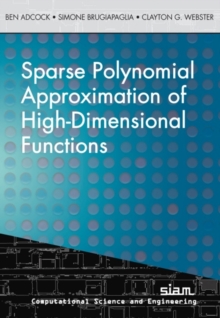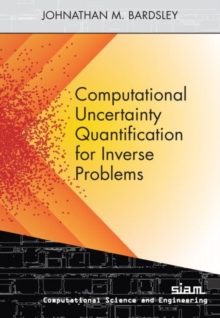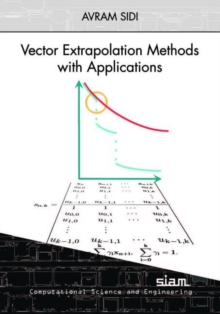
Mastering Frequency Domain Techniques for the Stability Analysis of LTI Time Delay Systems Paperback / softback
by Rifat Sipahi
Part of the Computational Science and Engineering series
Paperback / softback
- Information
Description
In many dynamical systems, time delays arise because of the time it takes to measure system states, perceive and evaluate events, formulate decisions, and act on those decisions.
The presence of delays may lead to undesirable outcomes; without an engineered design, the dynamics may underperform, oscillate, and even become unstable.
How to study the stability of dynamical systems influenced by time delays is a fundamental question.
Related issues include how much time delay the system can withstand without becoming unstable and how to change system parameters to render improved dynamic characteristics, utilize or tune the delay itself to improve dynamical behavior, and assess the stability and speed of response of the dynamics.
Mastering Frequency Domain Techniques for the Stability Analysis of LTI Time Delay Systems addresses these questions for linear time-invariant (LTI) systems with an eigenvalue-based approach built upon frequency domain techniques.
Readers will find key results from the literature, including all subtopics for those interested in deeper exploration.
The book presents step-by-step demonstrations of all implementations—including those that require special care in mathematics and numerical implementation—from the simpler, more intuitive ones in the introductory chapters to the more complex ones found in the later chapters.
Maple and MATLAB code is available from the author’s website. This multipurpose book is intended for graduate students, instructors, and researchers working in control engineering, robotics, mechatronics, network control systems, human-in-the-loop systems, human-machine systems, remote control and tele-operation, transportation systems, energy systems, and process control, as well as for those working in applied mathematics, systems biology, and physics.
It can be used as a primary text in courses on stability and control of time delay systems and as a supplementary text in courses in the above listed domains.
Information
-
In Stock - low on stock, only 1 copy remainingFree UK DeliveryEstimated delivery 2-3 working days
- Format:Paperback / softback
- Pages:174 pages
- Publisher:Society for Industrial & Applied Mathematics,U.S.
- Publication Date:30/06/2019
- Category:
- ISBN:9781611975710
Information
-
In Stock - low on stock, only 1 copy remainingFree UK DeliveryEstimated delivery 2-3 working days
- Format:Paperback / softback
- Pages:174 pages
- Publisher:Society for Industrial & Applied Mathematics,U.S.
- Publication Date:30/06/2019
- Category:
- ISBN:9781611975710



